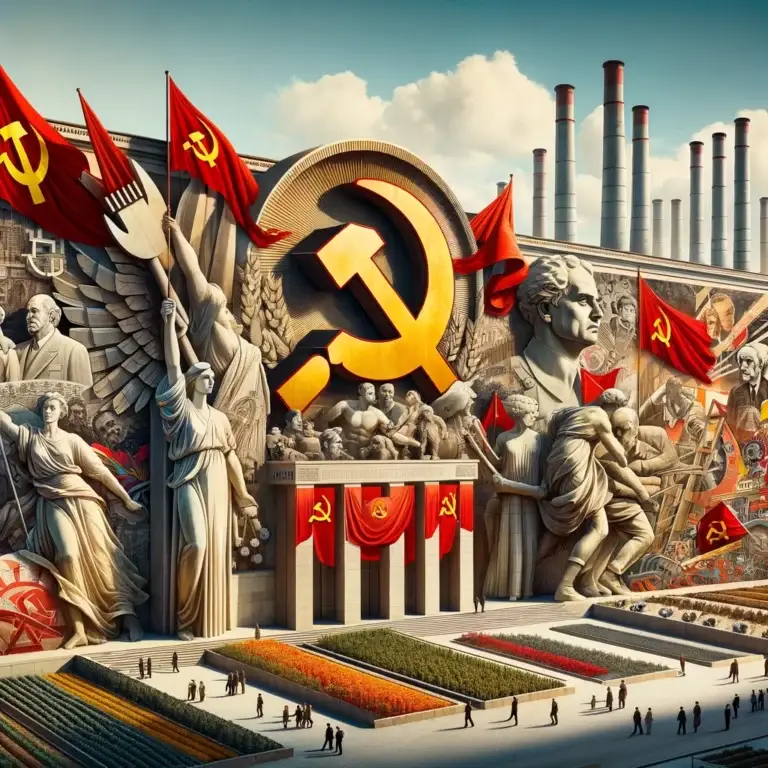Communism

Table of Contents
What is Communism?
Communism is a socio-political ideology and economic system characterized by the collective ownership of property and the absence of social classes, aiming to create a classless society.
Rooted in the writings of Karl Marx and Friedrich Engels, communism advocates for the abolition of private property and the establishment of a stateless, egalitarian society where resources are distributed based on need. In practice, communist states have typically been governed by single-party dictatorships, such as the Soviet Union, China, and Cuba, where the government controls the means of production and centralizes economic planning.
Communism in History
Communism is a socio-economic and political ideology that advocates for establishing a classless society where the means of production are commonly owned and controlled by the community or the state.
The roots of communism can be traced back to the writings of Karl Marx and Friedrich Engels in the 19th century, particularly their seminal work, “The Communist Manifesto,” published in 1848.
Marx envisioned communism as the final stage of human history, following capitalism and socialism, where private property and social classes would be abolished, and resources would be distributed according to need.
Communism emphasizes the importance of collective ownership and cooperation, aiming to eliminate exploitation, inequality, and alienation inherent in capitalist societies.
In practice, communist states have been established in various parts of the world, most notably in the Soviet Union, China, Cuba, Vietnam, and North Korea.
The Soviet Union, under the leadership of Vladimir Lenin and later Joseph Stalin, became the first self-proclaimed communist state following the Bolshevik Revolution of 1917.
Communism gained prominence during the 20th century as a political force, influencing revolutionary movements, anti-colonial struggles, and ideological conflicts such as the Cold War.
Communist regimes have been characterized by centralized planning, state control of the economy, one-party rule, and restrictions on political dissent and individual freedoms.
Despite its aspirations for social equality and economic justice, communism has been criticized for its authoritarian nature, human rights abuses, economic inefficiency, and lack of political pluralism.
By the late 20th century, many communist states experienced political and economic reforms, transitioning towards mixed-market economies and multi-party systems. In contrast, others collapsed entirely, leading to the end of the Cold War and the decline of communism as a global ideological force.
Related Links
Cold War
Korean War
Marshall Plan
Russian Revolution